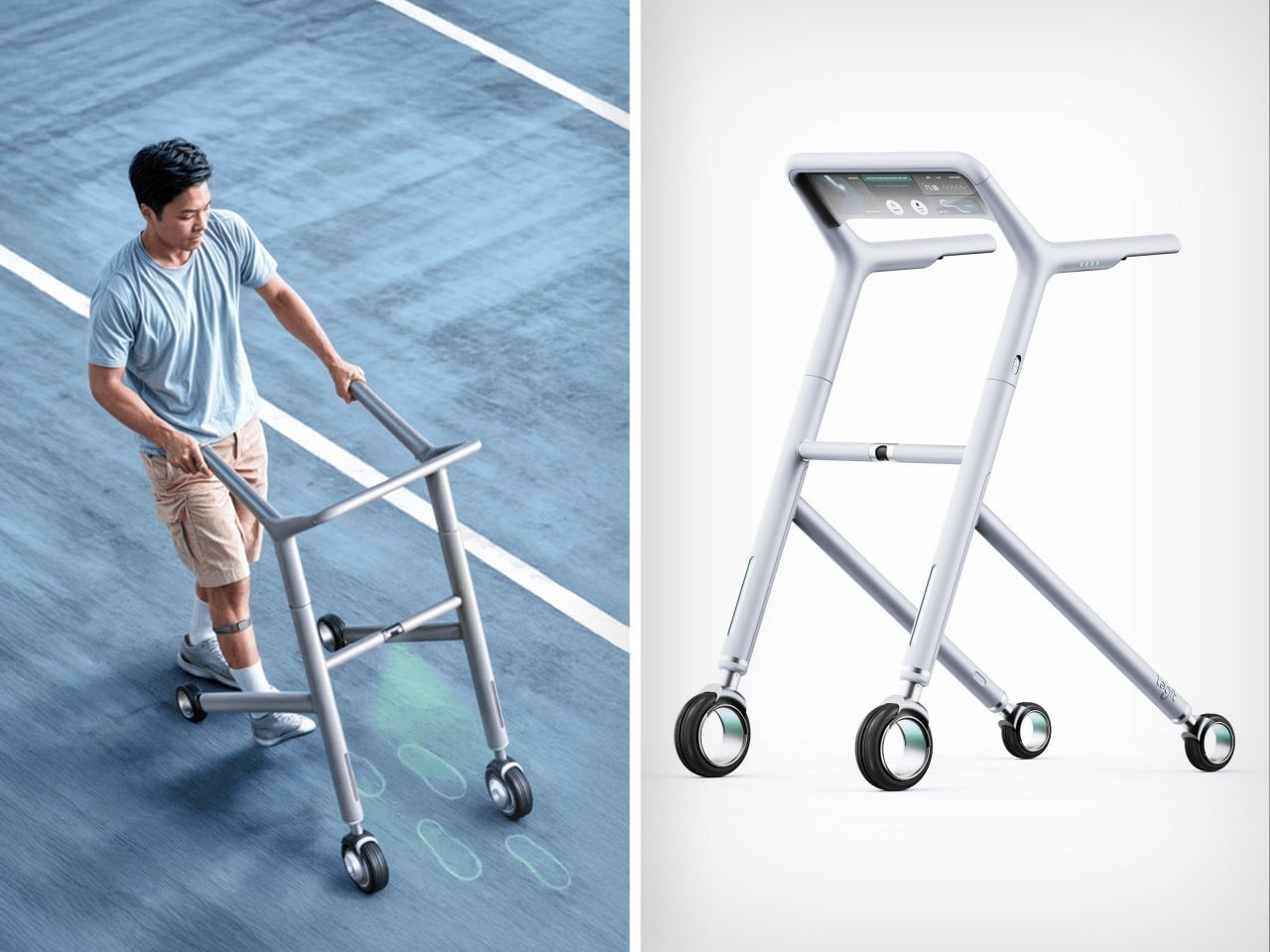This AI-Powered Walking Aid Redefines Rehabilitation with Smart, Hands-Free Patient Recovery
Healthcare systems around the world are under pressure, and South Korea is no exception. With a single healthcare professional often responsible for 16 to 43 patients, providing personalized, one-on-one rehabilitation becomes a nearly impossible task. Legit, an AI-powered walking aid, steps in to meet this challenge, offering a smarter, more efficient way to deliver high-quality rehab training without overburdening medical staff.
Legit is designed to support patients as they approach the walking stage of recovery. It enables them to train independently while still benefiting from expert-level oversight. At the heart of its functionality is the seamless integration of artificial intelligence and wearable technology, allowing for real-time feedback, remote monitoring, and adaptive support tailored to each patient’s condition.
Designers: eunhye jang, i jeongsu, Yun A Jang, and Yunjae Shin
Before training begins, patients attach a wearable EMG (electromyography) sensor patch to their thigh or calf. This patch detects muscle activity and communicates directly with the walking aid. The AI system analyzes this data in real time, adjusting training programs to suit the patient’s progress and condition. This not only personalizes the rehabilitation experience but also ensures that the patient remains safe and supported throughout their session.
Training with Legit isn’t passive, it’s purposeful. Patients follow an LED light beam projected onto the floor, which guides their stride and pace during walking exercises. The walker’s built-in display delivers intuitive feedback, showing real-time updates on speed, distance, and muscle engagement. It’s like having a digital coach on wheels, one that’s always responsive, never tired, and perfectly calibrated to the user’s needs.
For healthcare professionals, Legit is just as transformative. Through a centralized application, staff can manage multiple devices with ease. They start by selecting an available walker, checking its battery level, and turning it on. The system then displays the latest patient feedback, allowing medical staff to assess progress and identify any concerns. Based on this information, the AI suggests optimized training modes tailored to the patient’s rehabilitation stage. Once selected, these modes are linked to the device, and the session begins, all from a remote interface. This streamlined process enables minimal staffing without compromising the quality of care.
Legit allows patients to train within hospital track systems, where support is nearby if needed, but not constantly required. The walker adjusts in real time, helping patients fine-tune their gait, build strength, and regain mobility in a controlled, monitored environment. The combination of autonomy for the patient and oversight for the staff strikes a perfect balance, making rehab both accessible and effective.
More than just a walking aid, Legit represents a new mindset in rehabilitation—one where intelligent systems and human care work hand in hand. By reducing the dependency on constant physical supervision, it frees up valuable time for healthcare workers while empowering patients to take an active role in their recovery.
The post This AI-Powered Walking Aid Redefines Rehabilitation with Smart, Hands-Free Patient Recovery first appeared on Yanko Design.


